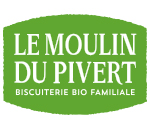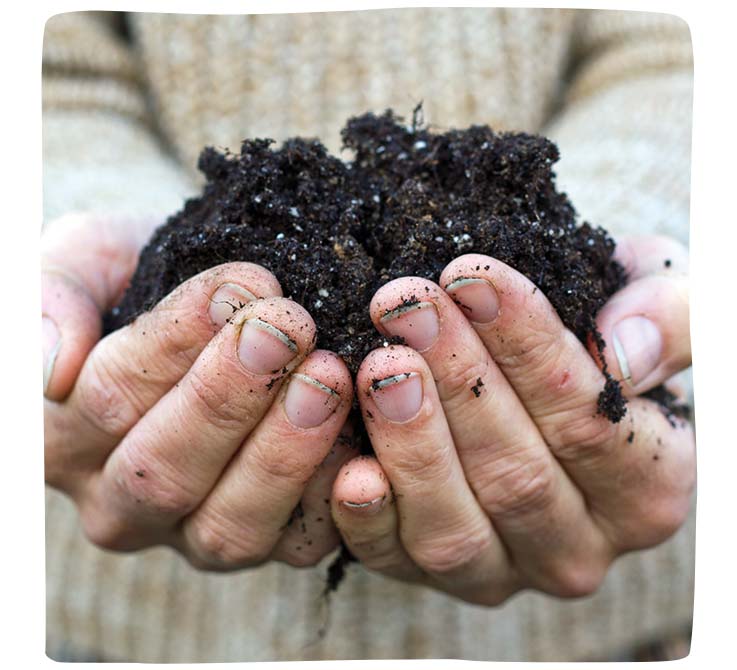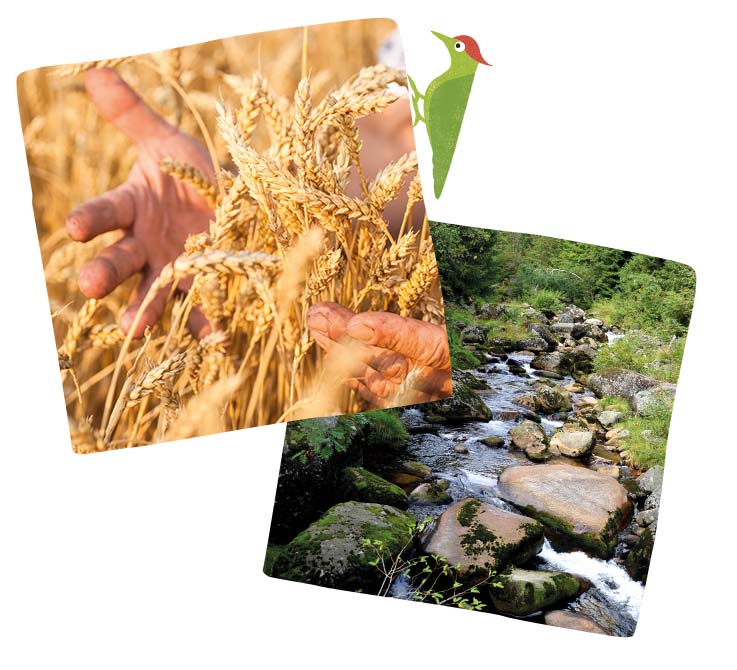
Action for Biodiversity
-Action for Biodiversity-
GOING ORGANIC IS GOOD FOR THE ENVIRONMENT TOO
GOING ORGANIC IS GOOD FOR THE ENVIRONMENT TOO
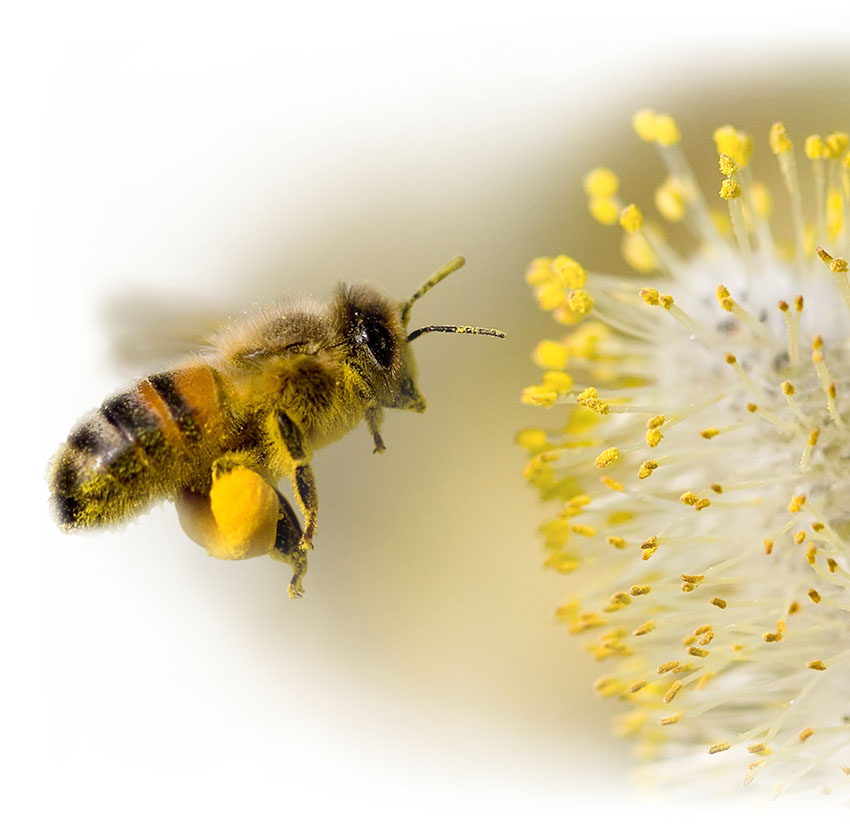
ORGANIC FARMING
PRACTICES
ORGANIC FARMING
PRACTICES ?
- It is estimated that around 80% of Europe’s insects have disappeared in the last 30 years, mainly due to the use of synthetic pesticides.
- In recent years, domestic bee populations in Europe have fallen by at least 40%.
- This decline has serious repercussions on our ecosystems as 75% of our food production relies on pollinating insects.
- Also, 70–90% of wild plants need pollinating insects to reproduce.
- In France, one in five animal species is in danger of becoming extinct. 32% of these are nesting birds. Their declining numbers are mainly due to habitat loss and the disappearance of the insects that they eat.
THE ADVANTAGES OF
GOING ORGANIC
Protecting biodiversity : organic farming helps protect natural habitats close to farmland. This creates an environment where animals – like birds, rodents, insects and bees – and wild plants can thrive.
Soil conservation : organic farming uses crop rotation, organic fertiliser and compost, and natural, biological pest combat. This makes the soil is more fertile and produces better-quality food. This makes the soil is more fertile and produces better-quality food.
THE ADVANTAGES OF GOING ORGANIC
Protecting biodiversity : organic farming helps protect natural habitats close to farmland. This creates an environment where animals – like birds, rodents, insects and bees – and wild plants can thrive.
Combat climate change : eating organic helps reduce greenhouse gases by avoiding the use of synthetic pesticides and fertilisers that are produced using fossil fuels.
Improve water quality : organic farming avoids contaminating water with pesticides and nitrates.
Soil conservation : organic farming uses crop rotation, organic fertiliser and compost, and natural, biological pest combat. This makes the soil is more fertile and produces better-quality food. This makes the soil is more fertile and produces better-quality food.
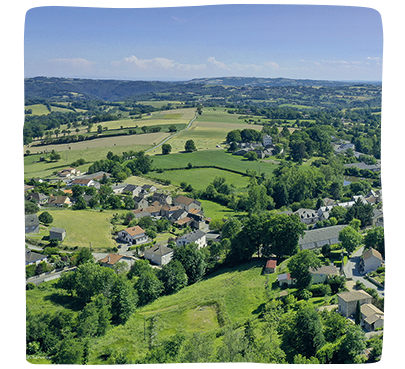

LA FOUILLADE : COMMITTED ORGANIC TERRITORY
Le Moulin du Pivert is located in La Fouillade, in Aveyron (Southern France). La Fouillade territory, where 22% of farmland is organic, was the first in Aveyron to be awarded “Territoire Bio Engagé” [Committed Organic Territory] label.

FOR BIODIVERSITY
AND THE ENVIRONMENT ?
We do not use palm oil for ethical and environmental reasons. Between 2001 and 2018, nearly 24 million hectares of tropical forest were destroyed in Indonesia and Malaysia, two main producers of palm oil. This deforestation on a massive scale has led to habitat loss for many species, including orangutans, Sumatran tigers and Javan rhinos.
We do not use soya produced in Brazil or France. In Brazil, production of this ingredient is a direct cause of deforestation in the Amazon. Between 2000 and 2018, around 7.4 million hectares of the Amazonian rainforest were felled to allow the expansion of soya cultivation. This has largely contributed to habitat loss for jaguars, sloths and birds. In France, soya cultivation also requires a lot of heat and water.
We work locally with growers and the LPO (French Society for the Protection of Birds) to encourage increasing the number of hedgerows for birds.
We source locally whenever possible, to reduce our carbon impact (regional wheat and sunflower oil, French butter, milk and sugar) (link to local page).
We are working to minimise the weight of our packaging to further reduce our carbon footprint. We have already started selling biscuits in flexible packaging made from 30% recycled plastic and 100% recyclable, as well as offering the opportunity to buy loose biscuits (link to page).
Our goal is zero food waste : broken cookies are offered to a store Le Fouilladais which sells them at a discount. Biscuits near their sell-by dates are offered to zero-waste outlets, employees, and charities.
We work in partnership with our organic retailers to optimise truck loads (ensuring trucks are as full as possible) and reduce the number of journeys required.
Within our company, we strongly encourage sustainable travel to work. For example, we offer bonuses for employees who move to La Fouillade or carshare regularly. Electric charge points are available free of charge for employees who own an electric car.

As a partner of LPO Occitanie [Occitania Regional Society for the Protection of Birds],we financially support annual educational campaigns in schools to teach 100% of schoolchildren in a district about the importance of biodiversity. We are also creating an educational trail around the lake in La Fouillade !


